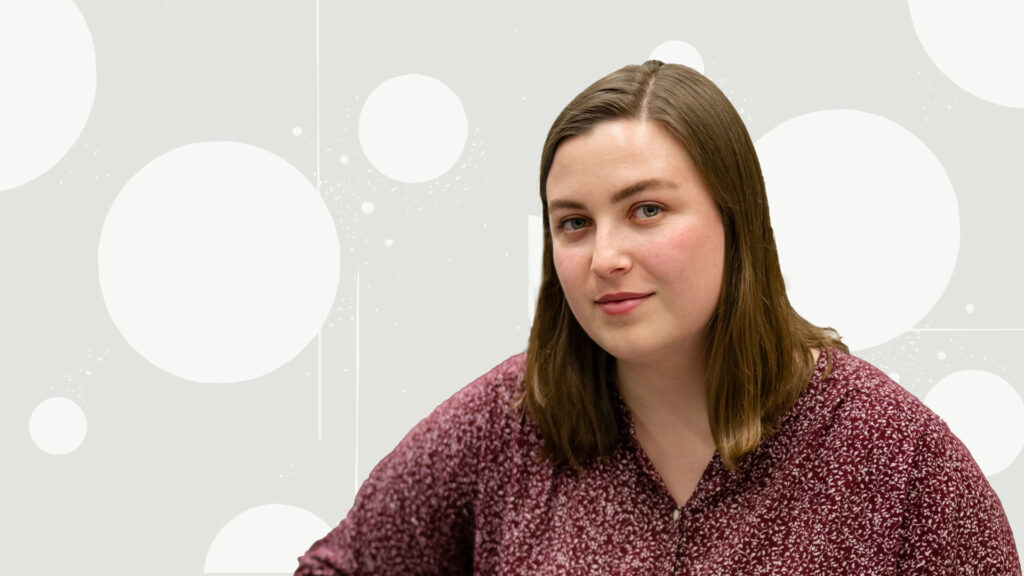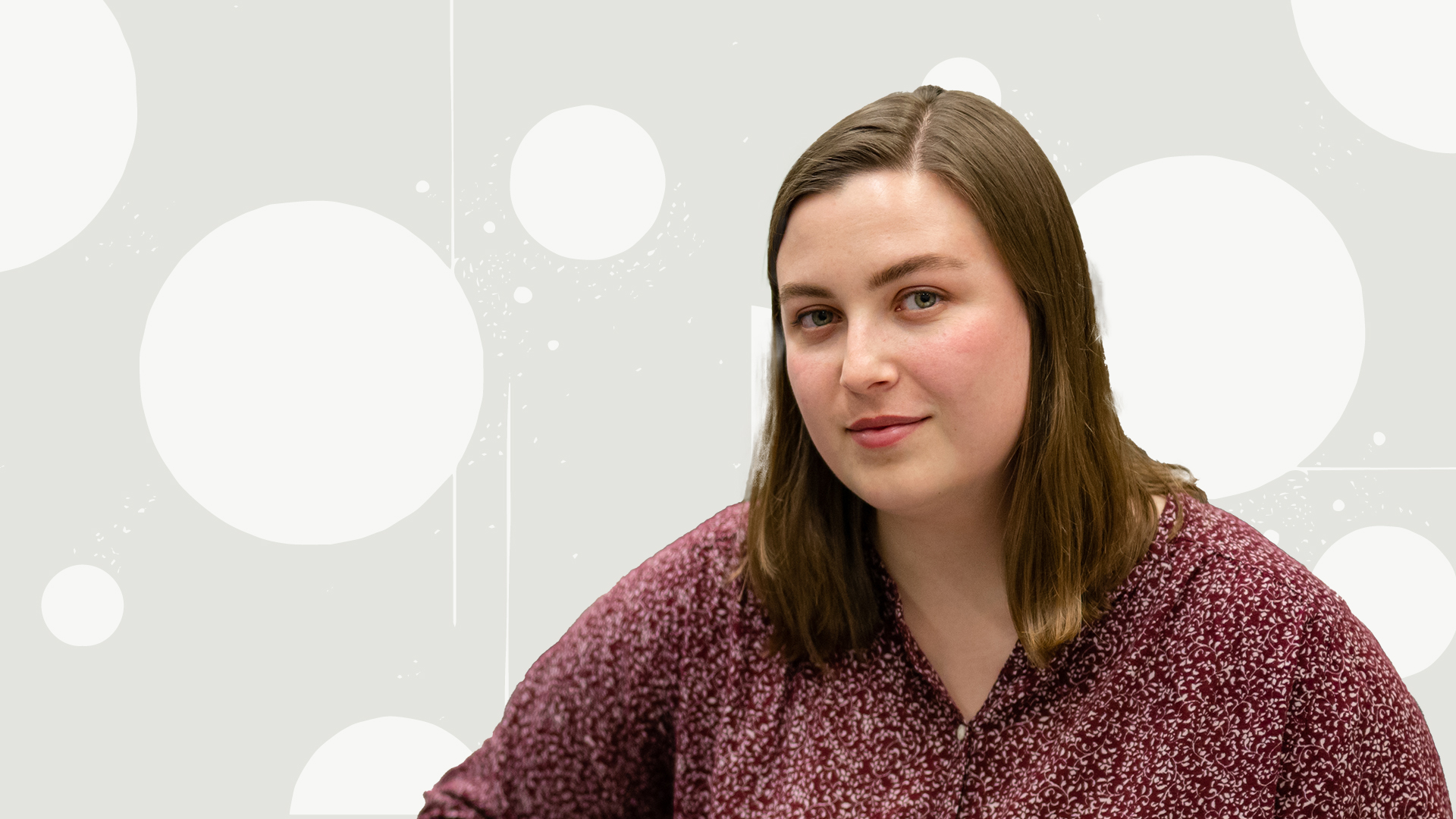
Fortescue is using her mechanical engineering expertise to bring quantum concepts to reality for physicists.
Elizabeth Fortescue works with quantum physicists to engineer and develop prototypes from their conceptual model designs. Here, she talks about her career journey and how she’s using her knowledge of mechanical engineering to develop groundbreaking quantum sensors in SRI’s Quantum and Semiconductor Laboratory under our Advanced Technology and Systems Division.
About four years ago, I relocated to Princeton and was looking for a job, and one day I just happened to drive by SRI. I’d never heard of it before, but I thought I’d look into whether they might have any openings that would fit my skill set. That’s how I ended up here—and I’ve been able to do some exciting work.
I’m originally from New Hampshire, and I graduated from Northeastern University in Boston with a B.S. in mechanical engineering. Though I originally thought I’d be an aerospace engineer—that’s always been where I saw myself going. During my cooperative program at Northeastern, I worked at an aerospace company and found it just wasn’t for me. I was sort of at a crossroads: I had always thought I’d be an aerospace engineer and now wasn’t sure what direction I wanted to go—but I knew I wanted to be an engineer.
I pivoted and spent time at two medical device companies and had great experiences, which really made me think: Can I see myself staying here? I worked on handheld devices used by doctors and at clinics that have a real impact on patients and outcomes; I was able to engineer a complete little system while working with interesting materials and constraints. This was more what I saw myself doing, mechanical engineering where I can focus on computer design to make something cool and innovative.
Today, I take my skills and apply them in whatever ways are needed for our quantum and semiconductor programs. I work primarily on the quantum side. It’s been an exciting challenge to me to test my mechanical engineering expertise and apply that to these complex quantum problems. I work with the physicists at SRI’s Quantum and Semiconductor Laboratory to figure out how to take a concept they’ve developed and modeled and turn it into a prototype. I work on the design side and also in the lab on the physical assembly of components.
A main project I’ve been involved with is a magnetometry program, where we’re creating portable sensors that can detect biomagnetic signals from the human body. We’ve recently demonstrated that this technology can be used for MCG (magnetocardiography)—the measurement of heart signals. This has been one of my favorite projects so far, because it has medical applications that have the potential to help a lot of people.
I wasn’t sure how I was going to do this job when I first started, but I really love it. Every project here is new and different. Being involved in research and development and cutting-edge technology isn’t something I ever expected to be involved with, but at SRI we’re in this interesting place between industry and academia where we’re doing novel research all the time. It’s exactly the kind of work I love doing, and a totally different world from a traditional mechanical engineering department at a company. I’m glad I found my way here.



